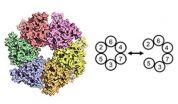(Press-News.org) PHILADELPHIA — Women who recently used birth control pills containing high-dose estrogen and a few other formulations had an increased risk for breast cancer, whereas women using some other formulations did not, according to data published in Cancer Research, a journal of the American Association for Cancer Research.
"Our results suggest that use of contemporary oral contraceptives [birth control pills] in the past year is associated with an increased breast cancer risk relative to never or former oral contraceptive use, and that this risk may vary by oral contraceptive formulation," said Elisabeth F. Beaber, PhD, MPH, a staff scientist in the Public Health Sciences Division of Fred Hutchinson Cancer Research Center in Seattle, Washington.
"Our results require confirmation and should be interpreted cautiously," added Beaber. "Breast cancer is rare among young women and there are numerous established health benefits associated with oral contraceptive use that must be considered. In addition, prior studies suggest that the increased risk associated with recent oral contraceptive use declines after stopping oral contraceptives."
In a nested case-control study of 1,102 women diagnosed with breast cancer and 21,952 controls, Beaber and colleagues found that recent oral contraceptive use increased breast cancer risk by 50 percent, compared with never or former use. All study participants were at Group Health Cooperative in the Seattle-Puget Sound area. Patients received a cancer diagnosis between 1990 and 2009.
Birth control pills containing high-dose estrogen increased breast cancer risk 2.7-fold, and those containing moderate-dose estrogen increased the risk 1.6-fold. Pills containing ethynodiol diacetate increased the risk 2.6-fold, and triphasic combination pills containing an average of 0.75 milligrams of norethindrone increased the risk 3.1-fold.
Birth control pills containing low-dose estrogen did not increase breast cancer risk.
About 24 percent, 78 percent, and less than 1 percent of study controls who were recent oral contraceptive users filled at least one prescription in the past year for low-, moderate-, and/or high-estrogen dose oral contraceptives, respectively, according to Beaber.
Unlike most previous studies that depended on women's self-report or recall, which may cause bias, Beaber and colleagues used electronic pharmacy records to gather detailed information on oral contraceptive use including drug name, dosage, and duration of medication.
INFORMATION:
This study was funded by the National Cancer Institute. Beaber declares no conflicts of interest.
To interview Elisabeth Beaber, contact Kristen Woodward at media@fredhutch.org or 206-667-2210. For other inquiries, contact Jeremy Moore at jeremy.moore@aacr.org or 215-446-7109.
Follow us: Cancer Research Catalyst http://blog.aacr.org; Twitter @AACR; and Facebook http://www.facebook.com/aacr.org
About the American Association for Cancer Research
Founded in 1907, the American Association for Cancer Research (AACR) is the world's oldest and largest professional organization dedicated to advancing cancer research and its mission to prevent and cure cancer. AACR membership includes more than 34,000 laboratory, translational, and clinical researchers; population scientists; other health care professionals; and cancer advocates residing in more than 90 countries. The AACR marshals the full spectrum of expertise of the cancer community to accelerate progress in the prevention, biology, diagnosis, and treatment of cancer by annually convening more than 20 conferences and educational workshops, the largest of which is the AACR Annual Meeting with more than 18,000 attendees. In addition, the AACR publishes eight peer-reviewed scientific journals and a magazine for cancer survivors, patients, and their caregivers. The AACR funds meritorious research directly as well as in cooperation with numerous cancer organizations. As the Scientific Partner of Stand Up To Cancer, the AACR provides expert peer review, grants administration, and scientific oversight of team science and individual grants in cancer research that have the potential for near-term patient benefit. The AACR actively communicates with legislators and policymakers about the value of cancer research and related biomedical science in saving lives from cancer. For more information about the AACR, visit http://www.AACR.org.
Recent use of some birth control pills may increase breast cancer risk
2014-08-01
ELSE PRESS RELEASES FROM THIS DATE:
Light pulses control graphene's electrical behavior
2014-08-01
CAMBRIDGE, Mass-- Graphene, an ultrathin form of carbon with exceptional electrical, optical, and mechanical properties, has become a focus of research on a variety of potential uses. Now researchers at MIT have found a way to control how the material conducts electricity by using extremely short light pulses, which could enable its use as a broadband light detector.
The new findings are published in the journal Physical Review Letters, in a paper by graduate student Alex Frenzel, Nuh Gedik, and three others.
The researchers found that by controlling the concentration ...
'Fracking' in the dark: Biological fallout of shale-gas production still largely unknown
2014-08-01
In the United States, natural-gas production from shale rock has increased by more than 700 percent since 2007. Yet scientists still do not fully understand the industry's effects on nature and wildlife, according to a report in the journal Frontiers in Ecology and the Environment.
As gas extraction continues to vastly outpace scientific examination, a team of eight conservation biologists from various organizations and institutions, including Princeton University, concluded that determining the environmental impact of gas-drilling sites — such as chemical contamination ...
For bats and dolphins, hearing gene prestin adapted for echolocation
2014-08-01
A little over a decade ago, prestin was found to be a key gene responsible for hearing in mammals. Prestin makes a protein found in the hair cells of the inner ear that contracts and expands rapidly to transmit signals that help the cochlea, like an antique phonograph horn, amplify sound waves to make hearing more sensitivity.
Now, in a new study published in the advanced online edition of Molecular Biology and Evolution, Peng Shi, et al., have shown that prestin has also independently evolved to play a critical role in the ultrasonic hearing range of animal sonar, ...
Scientist underlines threat of inevitable 'solar super-storms'
2014-08-01
In this month's issue of Physics World, Ashley Dale from the University of Bristol warns of the "catastrophic" and "long-lasting" impacts of "solar super-storms" and the dangers we face if the threat continues to go unnoticed.
Dale, who was a member of an international task force – dubbed SolarMAX – set up to identify the risks of a solar storm and how its impact could be minimized, explains how it is only a matter of time before an exceptionally violent solar storm is propelled towards Earth. Such a storm would wreak havoc with our communication systems and power supplies, ...
Harmful drinkers would be affected 200 times more than low risk drinkers with an MUP
2014-08-01
A new study of liver patients by the University of Southampton shows that a Minimum Unit Price (MUP) policy for alcohol is exquisitely targeted towards the heaviest drinkers with cirrhosis.
Published today in Clinical Medicine, the peer review journal for the Royal College of Physicians, the researchers studied the amount and type of alcohol drunk by 404 liver patients, and also asked patients how much they paid for alcohol. They found that patients with alcohol related cirrhosis were drinking on average the equivalent of four bottles of vodka each week, and were buying ...
Depressive symptoms and pain may affect health outcomes in dialysis patients
2014-08-01
Washington, DC (July 31, 2014) — Depressive symptoms and pain in patients on dialysis may have serious negative consequences for patients' health and increase the need for costly medical services, according to a study appearing in an upcoming issue of the Clinical Journal of the American Society of Nephrology (CJASN). The findings indicate that studies should evaluate the potential of anti-depressant and analgesic therapies to improve patient outcomes and reduce costs.
Depressive symptoms and pain are common in kidney failure patients receiving chronic hemodialysis, but ...
Molecular gate that could keep cancer cells locked up
2014-08-01
In a study published today in Genes & Development, Dr Christian Speck from the MRC Clinical Sciences Centre's DNA Replication group, in collaboration with Brookhaven National Laboratory (BNL), New York, reveal the intricate mechanisms involved in the enzyme that governs DNA duplication during cell division. By developing a sophisticated system using synthetic, chemical and structural biology approaches, the study reveals how a key enzyme involved in duplicating genetic information embraces DNA through a gated system, which opens up at precise positions allowing for a highly ...
SwRI-led team's research shows giant asteroids battered early Earth
2014-08-01
San Antonio — July 31, 2014 — A new terrestrial bombardment model developed by an international group of scientists led by Southwest Research Institute (SwRI) indicates that Earth's surface was heavily reprocessed — or melted, mixed and buried — as a result of giant asteroid impacts more than four billion years ago.
The model, calibrated using existing lunar and terrestrial data, sheds light on the role asteroid collisions played in the geological evolution of the uppermost layers of Earth during the geologic eon call the "Hadean," or first geologic eon, approximately ...
Blood and saliva tests help predict return of HPV-linked oral cancers
2014-07-31
Physicians at Johns Hopkins have developed blood and saliva tests that help accurately predict recurrences of HPV-linked oral cancers in a substantial number of patients. The tests screen for DNA fragments of the human papillomavirus (HPV) shed from cancer cells lingering in the mouth or other parts of the body. A description of the development is published in the July 31 issue of JAMA Otolaryngology – Head & Neck Surgery.
"There is a window of opportunity in the year after initial therapy to take an aggressive approach to spotting recurrences and intensively addressing ...
Study of twins discovers gene mutation linked to short sleep duration
2014-07-31
DARIEN, IL – Researchers who studied 100 twin pairs have identified a gene mutation that may allow the carrier to function normally on less than six hours of sleep per night. The genetic variant also appears to provide greater resistance to the effects of sleep deprivation.
Results show that a participant with p.Tyr362His – a variant of the BHLHE41 gene – had an average nightly sleep duration of only five hours, which was more than one hour shorter than the non-carrier twin, who slept for about six hours and five minutes per night. The twin with the gene mutation also ...

